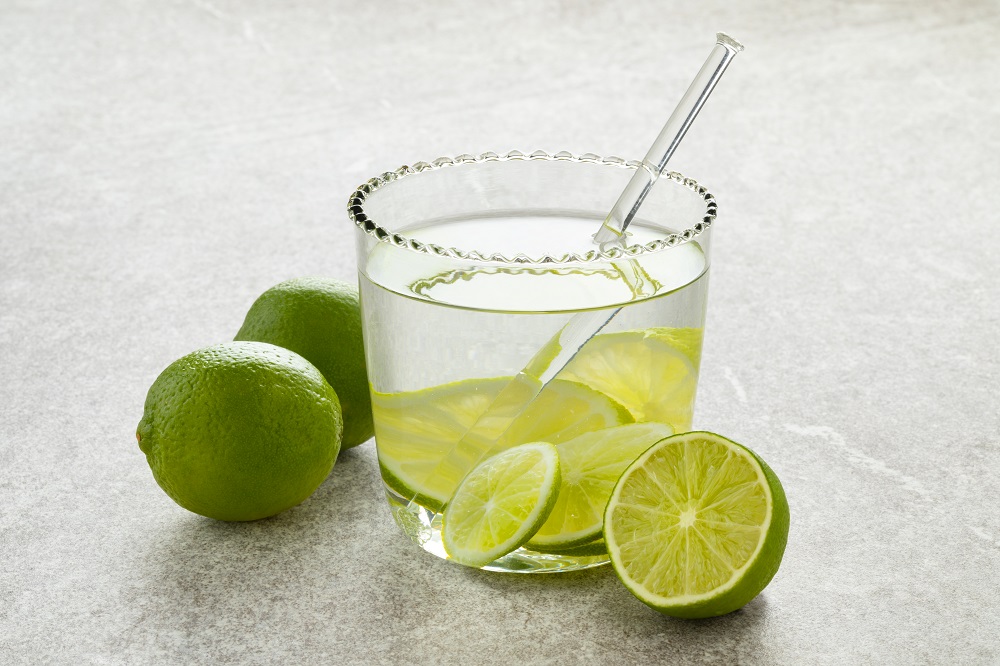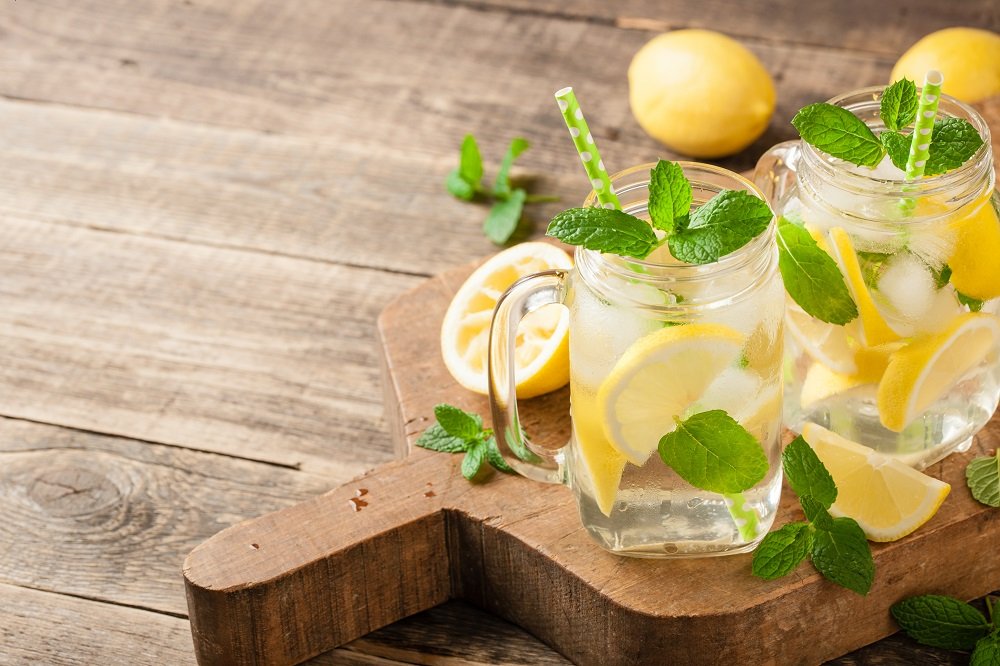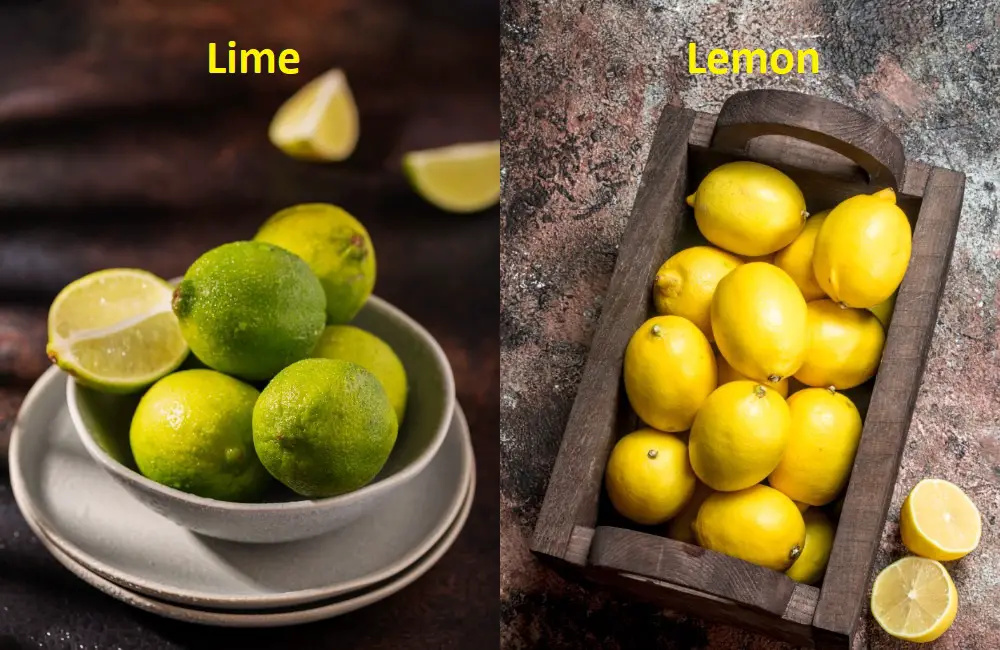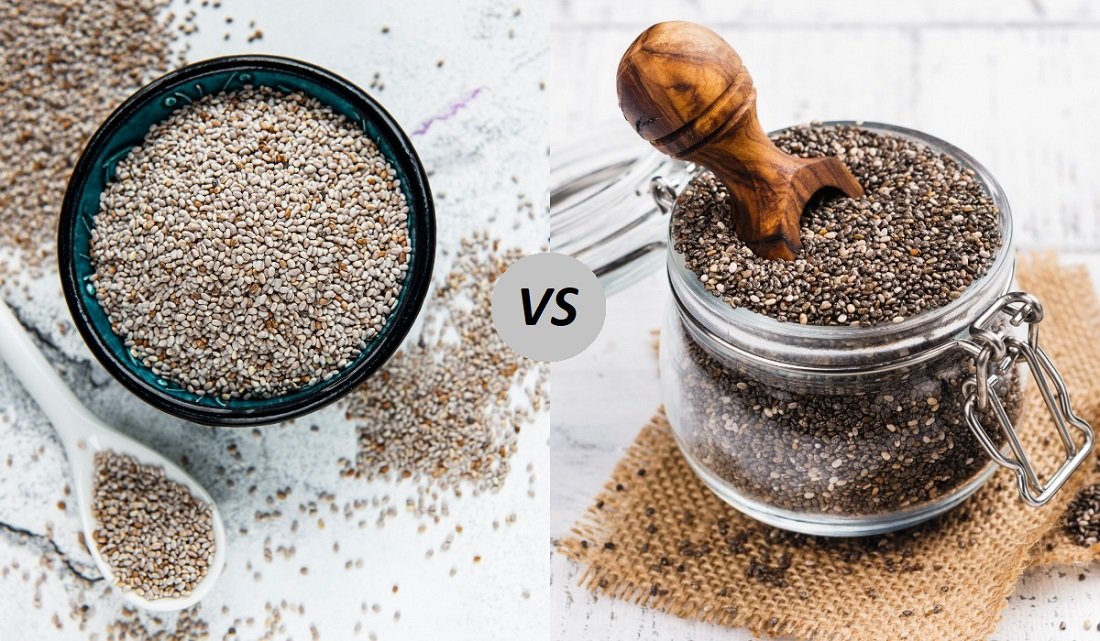Difference Between Lime and Lemon
Citrusy, sour, and full of nutrients, both lime and lemon have been scientifically proven to be quite beneficial for our health. Although they are very similar in many ways, these two do have some differences that you should know about.
Both lime water and lemon water can be used for cooking, making drinks, and be served as a refreshment, so you should know which one of them would best suit your purpose. In today’s lime water vs lemon water comparison, we will be discussing the differences as well as similarities of these two drinks. So, hop in.
Lime vs Lemon: An Overview
One of the easiest ways of distinguishing these two citrus fruits is by their color: lemon is naturally yellow, whereas lime is generally green. They also differ in shapes as lime is rounder and has thinner skin, while lemon has an oval shape with thick skin.
Despite having similar acidic levels, lime and lemon water have slightly different pH levels, with lime water having a lower pH level. Due to this reason, lime water has a more bitter taste in comparison to the sourness of lemon water.
Packed with antioxidants and other nutrients, these two drinks have been used for their health benefits for a long time. While both lime water and lemon water have been popular in the fitness community, lemon water has supposedly yielded better results in terms of fat loss or weight loss.
Although the health benefits of lime water and lemon water are similar, there are differences in terms of nutrients that make one of these better than the other in specific situations.
What is Lime Water?

Basically, lime water is water mixed with lime juice, which is a citrus fruit with the formal name of Citrus aurantifolia.
Lime water has plenty of vitamin A, high levels of calcium, as well as vitamin C, which are all great for building a stronger immune system. For chronic diseases, lime water is said to help with the spikes in sugar levels by regulating sugar absorption.
When it comes to taste, some of you may not love lime water because it has a bitter taste along with its sourness. That is why lime water is not as frequently used in cooking and making drinks; even if it is used for cooking, it is generally added to only savory dishes.
Drinking lime water is also a common remedy for treating cold and flu infections. Additionally, it also lessens the inflammations that are caused by arthritis and joint pain.
Flavonoids are also found in lime water, which is known to help people with metabolic disorders and heart diseases as well. Due to its low pH, we recommend you drink your lime water using a straw, or else it can result in cavities and erosion of your tooth enamel over time upon regular intake.
What is Lemon Water?

Made with lemon juice and water, lemon water often serves as a summertime refreshment as well as effective detox water in the morning to promote fat loss. Loaded with vitamin C, lemon water boosts the immune system to fight all sorts of diseases and is said to even reduce the risks of cancer.
Surprisingly, it has been shown that this drink can aid in preventing kidney stones from forming. It also helps in building up collagen, which, as a result, leads to better glowing skin, and it can even fight allergens in some cases.
Pregnant women often drink lemon water because of the benefits that it provides due to its high folate content.
With a glass of lemon water, you will stay hydrated for a long time, which is great for sunny afternoons. Having a sweet and sour taste, lemons are used in kitchens all across the world for both sweet and savory dishes. It will not only enhance the flavors of your cooking but will also improve your digestive system.
However, it must be noted that due to the high citric acid levels in lemon water, people with gastric issues may worsen their gastroesophageal reflux disease (GERD). Another con of lemon water is that it’s not great for your teeth, and having it with sugar can cause cavities.
You can also read the article about the differences between jam and jelly.
Main Differences Between Lime Water and Lemon Water
- Lemon water has a sweet and sour taste, which makes it more suitable for culinary purposes. Meanwhile, lime water has a tinge of bitterness to it along with the sourness, which makes it only suitable for savory dishes. So, in lime vs lemon battle, lemon has more use in the culinary world.
- Both lime water and lemon water have a lot of vitamin C and give its benefits. Still, the latter has a higher content of vitamin C. Therefore, lemon water is more beneficial for skin rejuvenation and preventing diseases such as cancer, heart disease, and more.
On the other hand, lime is often more effective for stiffness, joint pains, and arthritis.
- Infections, cold, and flu can be treated by both of these with almost equal effectiveness.
- Although both of these can aid weight loss, lemon water has a higher citric acid level, which means it can boost the metabolism more and thus can promote the burning of more calories than lime water.
- If you have gastric, you should not be drinking either lime or lemon water because both of these can worsen your heartburn, especially lemon water. Another downside of regularly having these two drinks is that they may erode the enamel of your teeth and put you at a higher risk for cavities.
- Between lime trees vs lemon trees, it can be hard to tell the difference sometimes, but the different color of the two fruits is a good indicator. However, if they haven’t grown any fruits, you can tell which tree is which because the leaves of lemon trees are longer and are more oval-shaped.
Recommended for You:
- Sushi Vs. Sashimi – Difference Between Sushi and Sashimi
- Difference Between Creme Fraiche and Sour Cream
- Mezcal Vs. Tequila: What Are The Main Differences?
The Comparison Table of Lemon and Lime
|
Parameter of Comparison |
Lemon |
Lime |
|
Citric Acidity, and pH level |
High level of citric acid and pH level of lemon is between 2.0 to 2.6. |
Moderate level of citric acid and pH level of lime is between 2.0 to 2.35. |
|
Vitamin C |
53 mg per 100g. |
29 mg per 100g. |
|
Diseases That Can Be Prevented |
Cancer, heart disease, kidney stones, digestive issues, flu, etc. |
Cancer, heart disease, digestive issues, flu, diabetes, etc. |
|
Taste |
Sour and sweet. |
Sour and bitter. |
|
Use for Cooking |
Used for both savory and sweet dishes frequently. |
Not as frequently used, and only used for savory dishes. |
|
Weight Loss |
Very effective when the drink is hot for promoting fat loss. |
Moderately effective in promoting fat loss. |
|
Risks |
Can worsen heartburn and gastroesophageal reflux disease. It can also cause cavities and erosion of tooth enamel. |
Can cause cavities, and erosion of tooth enamel. |
Conclusion
That’s the end of our discussion on lime vs lemon.
You will be good by drinking or using either of these two nutrient-packed, citrusy drinks any day. Keeping aside some of their differences, they are both very similar in many ways and can be used interchangeably for most cases.
Put your limes and lemons to good use because they are going to be keeping you healthy for a long time!






